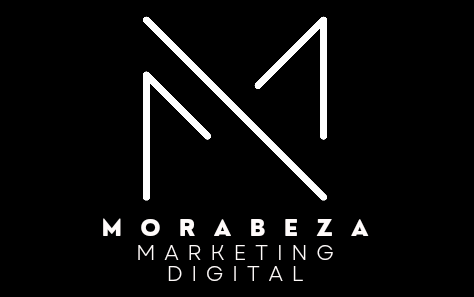


Social media has a huge impact on the way we perceive beauty, often promoting unrealistic standards through edited photos on platforms such as Instagram and TikTok. Influencers and celebrities show off idealised looks that can be difficult to achieve, leading many to feel dissatisfied with their own appearance and even consider cosmetic improvements.
The prevalence of editing tools creates a culture of comparison, especially among young people, affecting their body image and self-esteem. Although there is a growing appreciation for diverse beauty, the pressure to look flawless remains pervasive.
Embracing natural beauty can help redefine beauty standards in a more authentic way. Understanding how social media influences beauty ideals sheds light on the complexities of self-perception and social expectations in today's digital world.
Contents
Social networks intensify the pressure with their obsession with images perfectThese photos distort our idea of beauty, especially for young people. Given that 90% of teenagers are scrolling through these platforms, the flood of photos digitalotally improved sets an impossible standard.
Applications such as Instagram and TikTok thrive on promoting these unrealistic idealsIt's an unrealistic culture, where getting likes and approval depends on fitting into these unrealistic norms. The impact on young people's mental health and body image is significant, since exposure to these distorted beauty standards can trigger feelings of inadequacy and negative self-image.
Studies even reveal that teenagers who experiment with beauty filters are more inclined to consider cosmetic procedures to imitate the digitalmente-enhanced looks they see online, underlining how damaging these platforms can be in setting beauty standards for the younger generation.
Have you ever thought about how influencers and celebrities on social media play a role in shaping our perception of beauty? It's quite fascinating how their influence can affect our ideals and self-image.
Let's explore five ways in which these figures shape beauty standards:
The obsession with perfect images on social media distorts our perception of ourselves. Platforms like Instagram are full of influencers showing off edited and filtered versions of themselves, setting impossible standards of beauty.
These unrealistic ideals fuel insecurities and self-doubt as we compare ourselves to these flawless images. Constant exposure to these unattainable beauty standards distorts our perception of our own beauty and worth.
Filters and editing tools only make it harder to accept our natural appearance. Social media normalises perfection, reinforcing harmful beauty standards that influence the way we perceive ourselves.
The flood of perfect posts on social media is fuelling a culture of comparison which shapes the way individuals see their own beauty and self-worth. This culture of comparison may have harmful effects in the self-confidence and body image.
Social networks promote unattainable ideals of beauty through carefully crafted content. Being constantly exposed to this kind of content triggers self-evaluation and feelings of inadequacy. Users often measure their appearance against these unrealistic standards. Matching altered and refined images can significantly affect self-esteem. The perpetuation of comparison culture on social platforms reinforces impractical beauty standards.
Let's talk about how social media affects the way teenagers see beauty and their bodies. Platforms like Instagram and TikTok often show perfect, flawless images that aren't always real. This can make young people feel unhappy with their own bodies and cause mental health problems. Here are some ways in which social media can impact the way teenagers view beauty and their bodies:
| Effects of Social Media on Adolescents' Body Image |
|---|
| Increased dissatisfaction with their bodies |
| Desire for plastic surgery due to beauty filters |
| Low self-esteem and confidence |
| Promotion of unrealistic beauty standards |
| Link to mental health problems |
These points show how much social media can affect the way teenagers feel about themselves, making it crucial to promote realistic beauty standards and a positive body image.
How do social networks continue to promote the idea of a perfect appearance, affecting our perception of beauty and ourselves? Social networks tend to set unrealistic standards by using filters and editing tools to retouch images.
Here are five ways in which social networks fuel the obsession with looking flawless:
The use of advanced editing tools on social media platforms is now a common trend, where individuals mould and adjust their digital appearances to fit in with the social beauty standards.
These tools, such as Photoshop and beauty filters, play a role in promoting unrealistic beauty ideals by allowing users to change their facial features, body shapes and skin tones.
Consequently, the abundance of edited images on social media can distorting perceptions of beauty and self-image among users. The pressure to adhere to these modified standards may have adverse effects on self-confidence and mental health.
Beauty filters and editing tools are significant in the manufacture of false identities and the promotion of impractical beauty standards within the sphere of social networks.
The abundance of sophisticated editing tools on social media doesn't just distort our ideas of beauty; it actually affects our self-esteem and mental well-being.
Seeing those immaculate, edited faces on Instagram and TikTok can make us feel pretty bad about ourselves. Constantly measuring up to those unrealistic standards can make us feel like we're not good enough and ruin our body image.
Young people who play with beauty filters can start dreaming of plastic surgery to look like these digital-enhanced versions, making these impossible ideals even more unattainable.
When social media prioritises outer beauty over inner qualities, this can seriously affect our self-worth and have an impact on our mental health.
Social media has really broadened our idea of beauty, embracing all types of genders, skin tones, body shapes, origins and hair textures. They have sparked important conversations challenging those old standards of beauty promoted by traditional media.
Influencers are always being authentic, sharing unfiltered photos and celebrating all types of beauty. But we can't forget those cunning filters and edits that still promote those impossible beauty goals, affecting our self-esteem. The pressure to look perfect online has even led more people to consider cosmetic procedures such as fillers and facelifts.
As social media continues to shape our ideals of beauty, it's crucial to focus on authenticity and diverse representation to redefine what beauty means in a more inclusive way.
In the realm of social media, a beautiful tapestry of diverse beauty types is being celebrated, covering a spectrum of genders, skin tones, body sizes, origins and hair textures.
Social media movements like #BoPo are championing body positivity, urging us to embrace healthy body images through unedited photos.
Filters and editing tools often perpetuate unattainable standards of beauty, having a detrimental impact on self-esteem.
The essence of authenticity is being increasingly valued in beauty content, highlighting the disparity between carefully crafted publications and genuine looks.
Varied perspectives presented on social media are reshaping conventional beauty norms, promoting a wider acceptance and understanding of diverse forms of beauty.
The emergence of unedited beauty on social platforms is dismantling traditional beauty ideals, exalting individuality in its raw and authentic form.
